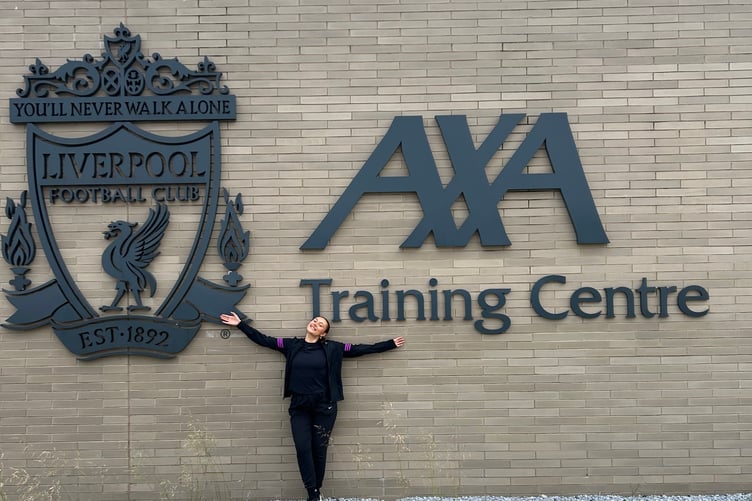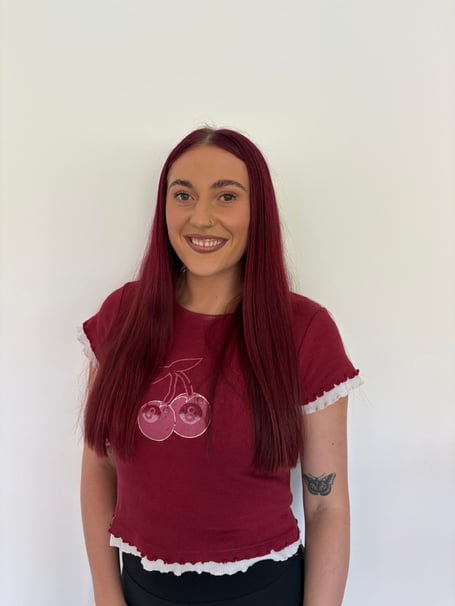A promising athlete who developed a chronic illness after contracting Covid-19 has spoken of how it left her periodically bed-bound and reliant on a wheelchair.
Alex Johnston, now 23, was studying physiotherapy at Manchester University in 2020 with ambitions of working for Liverpool Football Club when she fell ill just two weeks into her course. The infection triggered Postural Orthostatic Tachycardia Syndrome (POTS), a chronic condition affecting the autonomic nervous system.
‘It controls everything that we don’t have to think about, such as our blood pressure and heart rate,’ she explained.
The diagnosis meant the former Isle of Man national netball player was forced to withdraw from university and adapt to life with debilitating symptoms. She went from competing at an elite level to being unable to stand for long periods, often using a wheelchair.
Alex said finally being diagnosed brought mixed emotions. ‘By the time I had received the diagnosis, I already had really debilitating symptoms for close to six months. I was so relieved to get answers as to what had been going on with my body and truly believed that from that day everything would get so much better.’
However, she described the process as isolating. ‘The doctor who diagnosed me quite literally just gave me the name of the diagnosis and left. I had no clue what Postural Orthostatic Tachycardia Syndrome was. It was only when I got home and researched it that I realised a chronic illness meant no cure and that this was something I would have to manage forever.’

Her symptoms were initially dismissed as a cardiac issue and she was told to slow down, advice that worsened her condition. It took six months to be referred to a cardiologist. ‘I was told due to my age there was no way I needed an emergency referral. That was probably the moment I knew I had to persist and advocate for myself to get answers,’ she said.
Determined not to let the illness define her, Alex launched an Instagram page, @lifewithpots__, and later a podcast, Life With POTScast, to document her journey. She said she wanted to share a more hopeful perspective after noticing that most online content about chronic illness focused only on the negatives.
Her work earned her a place in the Gef 30 Under 30 list in 2025, recognised in the Achievement category, supported by Capital International.
Alex has also been able to realise her original ambition, spending time working with Liverpool FC’s under-23 squad. ‘Working with the LFC U23 squad was incredible. When I got to tell my family I’d be working with the Liverpool squad, I felt like everything I had gone through in the last few years was so worth it to get to that point,’ she said.
This year she returned to the netball court, 1,604 days after her diagnosis.
Reflecting on her progress, Alex said: ‘I’ve gone from being bed-bound and a wheelchair user. I am still chronically ill - I always will be - but it doesn’t control me anymore.’



.jpeg?width=209&height=140&crop=209:145,smart&quality=75)
-Andrew-Swithinbank-(Independent-Chair.jpeg?width=209&height=140&crop=209:145,smart&quality=75)
